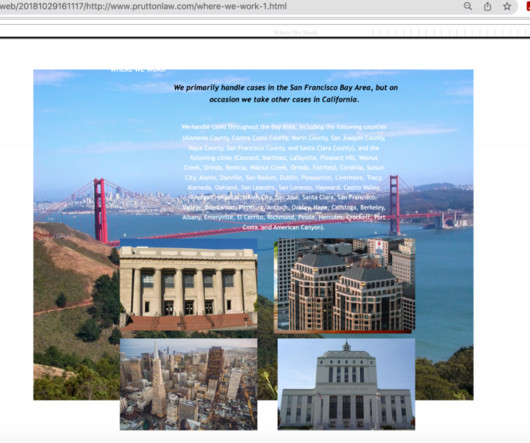Is Your Website Published or Unpublished?
Plagiarism Today
APRIL 7, 2022
It deals with whether Amazon and/or CCA infringed FDN’s copyrights by scraping descriptions from their website for use as part of Amazon’s product listings. That question is whether the descriptions were “published” or “unpublished” according to the law when they were put on FDN’s website. According to the U.S. Bottom Line.












Let's personalize your content